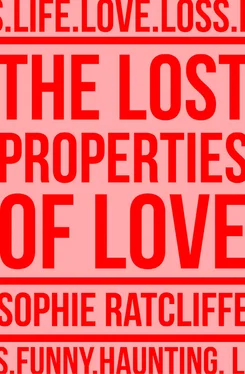Down the studio corridor, things are developing. Two men stand, side by side, by candlelight, next to a running water bath. One of them holds the tin sheet on his left hand, balanced like a chalice, his wrist tense with concentration. The other man passes him a small cup of developer. He flows it over the plate, timing his movements by tapping his right hand on his thigh. The lightest points appear first. Fifteen seconds in near darkness. Then the tones. The shadows come last. Surfaces and depths. The assistant leans closer to the other to check the image, looking at the levels. Then he begins to wash the plate with water, pouring the jug he has at the ready. Gently, for nothing yet is fixed. And so the surfaces of the glass transform, changing their nature. Silver nitrate and ferrous sulphate. A chemical’s properties reveal themselves in change. Action and reaction. Combustion, explosion, evaporation, smoke.
Any photograph like this contains an element of risk. An ethereal solution of pyroxylin. The risk of taking too long to make a pose, or not long enough. The risk of moving during the exposure and blurring the image. And then behind the scenes, the scurry to develop the plate, the assistant holding the glass like a delicate tray, of clumsily flowing the developing fluid or leaving it too long, and turning it black. Of scorching the image in candlelight. This picture records all those risks, and some of a less technical kind. Through the cyanide, an affair was coming into focus. Someone was nearly getting burned.
It was done. The photograph was taken, and it was time to go. Beside them, a stagecoach draws up. An unknown woman in dark-red velvet is handed down from the carriage. An unknown man takes her by the arm, an intimacy legible in the way they touch. The two unknowns disappear. Trollope and Field shake hands on the sidewalk outside the marble building, as the clouds break and they ready themselves to part. Knowingly. This goodbye might, they thought, have been their last meeting, certainly for years. It could have been for ever. Field’s diaries speak of being sick at heart . She is angry with herself for wasting time . She had nobody, she wrote, to spur her into new fields . Looking on, a passer-by would not have guessed that something was going on. They couldn’t have seen the lines of a future absence taking shape between the two of them, the imagined distance starting to solidify.
I like to think that Trollope watched her, as she turned left. Nothing now remains of that part of Cortlandt Street. It was half flattened out for the building of the World Trade Center, then flattened again one September morning, seen now only in film clips of grey and yellow horror. She was drawn by the pictures she’d seen in the papers of iron legs, the idea of newly fragile structures hovering over the streets of Lower Manhattan. The El train. A city on the move. In her head, she’d make a sketch of mechanical speed with words, thinking through the violence of the drop, the idea of the small cars catching and releasing the iron hooks above them, like gymnasts on rings. They’d finished constructing the final sections of the railway by then. The fixed iron posts punctuated the roadways supporting the car-rails, all acrobatic, airy and perched-up , as the papers said. It was grey but hot, waiting to break into rain.
I imagine the road as it once was, crowded with horses and carts outside Peter Henderson’s, men smoking outside the Northern Hotel. She found a man from the railway company who let her climb the stairs to view an empty car. There she sat, right up on the rails, beside the second-floor windows of the dry goods stores, looking down at the heads of the passers-by. She was glad for that brolly, as the rain began in earnest. Pouring down in pitchforks and then buckets onto the sidewalk. I think of you, as she thinks of him, still fading.
— 2016 —
Miss you like …
Natalie Cole
A man sleeps opposite me, his head listing to the left. An inflatable navy blue suedette pillow matches the navy and silver seat velour. We go through a cutting, into the dark, then out again, past the lines of Heron Foods vans and the Emon Spice Lounge and the fields of hay cut short.
I think back to the photographs of Field. Even at a slant, her eyes look too pale to be true – almost luminously so. Another trick of the light. Collodion does not recognise the existence of blue. There was no way to catch her eyes.
Later, when they were apart, Trollope asked Field for a photograph of her facing straight ahead, full front . He said he wanted her natural look . Leafing through the images of Kate Field, you’ll hardly ever find it. There’s one of her leaning against a pillar, as if overhearing a conversation. One leaning back on a sofa, her head cupped in her hand. One profile, with French lace. One on horseback, on her way. Only one of her looking straight at the camera, all in white, a messenger bag slung across her torso. Something about her resisted that pose. Her pictures usually show her moving towards a world elsewhere, a profil perdu , so very French – or glancing over her shoulder, her gaze never quite meeting yours.
Sidewalk or not, they would have said farewell somewhere, somehow. We never know when the last word is said. Perhaps the last word is never said. Can anything indeed , Field’s biographer asked, in this part of life be ever said to be the end ? We never know when our meeting with another person might be the final one. Even the most heartfelt goodbyes usually have a confident belief in au revoir , a next time, a next place. But on the very fringes of our consciousness there is always the sense that this might be, if not the full stop in the conversation, then a conversation left hanging. For some, the finality is always that bit closer. The hurried quality of lovers parting bears it out. Lovers’ time is carved out of real time – or stolen. It’s always under threat.
Any affair is an attempt to live twice. Set into the beige wall of everyday linear time, it exists beyond a door you think nobody else has noticed. You walk past doors just like it every day. Often you don’t even think to look at it. But now and again, you stand beside it. You might be the sort to push open that door. Sometimes it resists your touch, or bounces gently on the hinges before shutting, and you return to the beige world. You read a safety notice about fire drills on the wall, check your phone, or fish something from your bag, as if pretending that you never even tried to push. But sometimes you are standing nearby and that door swings open seemingly of its own accord, offering a floodlit view down a pathway of nylon grass. The walk seems impossibly short. And while you are there, you have two lives, and two heartbeats. You make believe that you have created a sort of a time pocket or vortex, a duplicate self. There’s something almost impossible about this other, Narnian universe. And while you are in it, nobody does it better. The moment you take your first step, you feel as if time has warped and split.
If photographs are a way of stopping time – their stilled presence, wet collodion and albumen transformed into something brittle, calm and dry – then affairs create a negative imprint, a second life. If a camera is a clock for seeing , as Barthes has it, then an affair is a clock for living . For anyone hungry for time, this door is the one to open for that oh-so-dangerous illusion, the illusion of more time, more space. Of more.
Trollope always hungered. He wanted to split into pieces, to live many lives. His characters multiply, revolving, double, inconsistent. An affair with words. You can see it right from the beginning. Please, sir, I want . First as a bullied child walking through the streets of Harrow, dreaming of castles in the air. Then, as an adult, sitting at his desk every day. He squeezed time, waking in the dark and writing into sunrise, spooling out a thousand words an hour between five and eight in the morning. Two hundred and fifty words every fifteen minutes. I attribute the power of doing this altogether , he wrote, to the virtue of early hours. It was my practice to be at my table every morning at 5.30 a.m. His groom got up first and made him coffee, then the real day began.
Читать дальше












